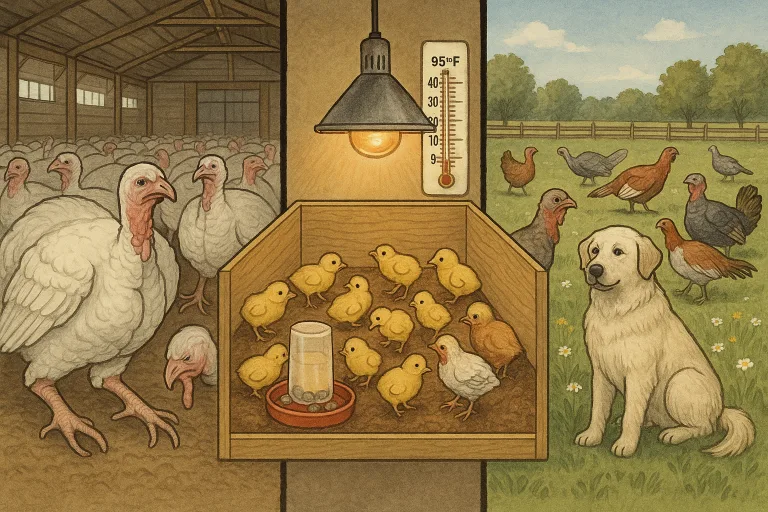Backyard Egg Selling Laws In New York
Imagine you’re treading through a patch of uncharted land, much like an intrepid explorer venturing into unexplored territory. As you navigate the maze of rules and regulations, you stumble upon a topic that piques your curiosity: backyard egg selling laws in New York.
What are the ins and outs of this intriguing area? How can you make sure you stay on the right side of the law?
In this discussion, we will dive into the depths of New York’s regulations, exploring licensing requirements, health standards, packaging guidelines, and much more. Prepare to uncover the secrets behind backyard egg selling laws in the Empire State.
Importance of Understanding Backyard Egg Selling Laws
Understanding backyard egg selling laws is crucial for anyone interested in selling eggs from their own property in New York. It’s important to have a clear understanding of the legal requirements and regulations surrounding backyard egg sales to ensure compliance and the safety of both the seller and the consumers.
When it comes to selling eggs from your backyard, there are certain legal requirements that you must adhere to. First and foremost, you need to obtain a license or permit from the New York State Department of Agriculture and Markets. This license ensures that you’re operating within the guidelines set forth by the state and that you’re following proper food safety practices.
Additionally, backyard egg safety is a significant concern. It’s essential to understand and implement proper handling, storage, and labeling practices to prevent the risk of contamination or foodborne illnesses. This includes ensuring that the eggs are clean, properly refrigerated, and labeled with the required information such as the sell-by date.
Overview of New York’s Backyard Egg Selling Regulations
To ensure compliance with New York’s backyard egg selling laws, it’s important to familiarize yourself with the specific regulations governing the sale of eggs from your property. Understanding backyard egg selling laws is crucial for anyone interested in selling eggs from their backyard in New York.
In New York, the sale of eggs from backyard flocks is subject to certain regulations to ensure food safety and consumer protection. These regulations aim to maintain the quality and safety of eggs sold to the public. Compliance with these regulations is necessary to avoid legal issues and potential penalties.
One of the key requirements is the registration of your flock. In New York, backyard egg sellers must register their flocks with the state Department of Agriculture and Markets. This registration helps track the source of eggs and ensures that sellers are adhering to proper standards.
Another important regulation is labeling. When selling eggs, it’s essential to label them correctly. This includes providing information such as the name and address of the seller, the date the eggs were packed, and any necessary warnings or advisories.
Additionally, sellers must maintain proper storage and handling practices to prevent contamination and maintain egg quality. Eggs should be stored at the appropriate temperature and handled with care to minimize the risk of bacterial growth.
Licensing and Permit Requirements for Selling Eggs in New York
Selling eggs from your backyard in New York requires obtaining the necessary licenses and permits. It’s important to understand the licensing and permit requirements to ensure compliance with the law and avoid any potential penalties or legal issues. Here are three key points to consider:
- Licensing Requirements: To sell eggs in New York, you may need to obtain a license from the New York State Department of Agriculture and Markets. The specific requirements for obtaining a license may vary depending on the scale of your operation and the number of hens you have. It’s advisable to contact the department directly or visit their website for detailed information on the licensing process.
- Permit Requirements: In addition to obtaining a license, you may also need to obtain permits from your local government or health department. These permits ensure that your backyard egg-selling business complies with local regulations and meets health and safety standards. The requirements for permits may include inspections, proper labeling, and adherence to specific sanitation practices.
- Consulting Local Authorities: It’s recommended to consult your local authorities, such as your city or town clerk’s office, to determine any additional licensing or permit requirements specific to your area. They can provide you with the necessary information and guidance to ensure that you’re in compliance with all applicable laws and regulations.
Health and Safety Standards for Backyard Egg Production
When it comes to backyard egg production, there are certain hygiene requirements that need to be followed to ensure the safety of the eggs.
These requirements include proper cleaning and sanitization of egg-laying areas, as well as regular inspection and certification processes to maintain high health and safety standards.
Hygiene Requirements for Eggs
Maintaining proper hygiene is crucial for ensuring the health and safety of backyard egg production. By following hygiene standards and implementing appropriate egg handling procedures, you can minimize the risk of contamination and ensure the quality of your eggs. Here are three important factors to consider:
- Clean environment: Provide a clean and well-maintained coop for your hens. Regularly clean the nesting boxes and remove any soiled bedding or droppings. This helps prevent the spread of bacteria and parasites.
- Proper egg handling: Wash your hands thoroughly before and after handling eggs. Collect eggs daily to prevent them from becoming dirty or cracked. Use clean and sanitized egg cartons to store your eggs.
- Storage and refrigeration: Store eggs in a cool, dry place with good ventilation. Ensure they’re stored at a temperature of 45°F (7°C) or below to prevent bacterial growth. Refrigerate eggs promptly after collection.
Following these hygiene requirements won’t only help maintain the quality of your eggs but also promote the health and safety of both you and your consumers.
Inspection and Certification Process
To ensure compliance with health and safety standards for backyard egg production, an inspection and certification process is implemented.
The inspection process involves a thorough examination of the facilities, equipment, and practices used in egg production. Inspectors will assess the cleanliness of the coop, the handling and storage of eggs, and the overall health and welfare of the chickens. They’ll also check for any signs of disease or contamination that could pose a risk to consumers.
Certification requirements may vary, but generally, backyard egg producers must demonstrate that they meet the necessary standards for cleanliness, food safety, and animal welfare. This may involve providing documentation, such as records of cleaning and maintenance, vaccination records, and training certificates.
Once the inspection and certification process is complete, backyard egg producers can confidently sell their eggs to the public, knowing that they’ve met the necessary health and safety standards.
Labeling and Packaging Requirements for Eggs in New York
When it comes to selling eggs in New York, there are specific labeling regulations and packaging guidelines that must be followed. These requirements ensure that consumers have access to important information about the eggs they’re purchasing, such as the date of packaging, the producer’s name and address, and any applicable grading or size information.
In addition, proper packaging is essential to protect the eggs from damage and maintain their freshness.
Labeling Regulations
Labeling regulations for eggs in New York dictate the specific requirements for how eggs must be labeled and packaged. These regulations ensure that consumers have access to accurate and informative information about the eggs they purchase. Here are the key points to remember regarding labeling requirements for eggs in New York:
- Proper labeling: Eggs must be labeled with the name and address of the producer or distributor, as well as the quantity of eggs contained in the package.
- Nutritional information: In addition to the required labeling information, the packaging must also display the nutritional facts of the eggs, including calories, fat, cholesterol, and protein content.
- Clear and legible: All labeling information, including nutritional information, must be clear and easily readable to ensure consumers can make informed choices about the eggs they purchase.
Packaging Guidelines
Packaging guidelines for eggs in New York ensure that eggs are properly labeled and packaged to provide consumers with accurate information and maintain product quality.
When it comes to packaging materials, it’s important to use clean and new cartons specifically designed for eggs. These cartons should be free from any contaminants and should have proper ventilation to prevent the buildup of moisture. Additionally, the packaging should be able to protect the eggs from breakage during transportation and handling.
Storage guidelines are also crucial to maintain the freshness and quality of the eggs. It’s recommended to store eggs in a cool and dry place, away from strong odors and direct sunlight. Eggs should be stored with their pointed end down to prevent the yolk from contacting the air cell, which can lead to spoilage.
Following these packaging guidelines and storage recommendations will ensure that consumers receive safe and high-quality eggs.
Sales and Distribution Restrictions for Backyard Egg Sellers
Sales and distribution restrictions for backyard egg sellers in New York can have a significant impact on the way individuals can sell their eggs. These restrictions are put in place to ensure the importance of food safety and to protect the local economy. Here are three key points to consider:
- Licensing requirements: Backyard egg sellers are required to obtain a license from the New York Department of Agriculture and Markets. This ensures that sellers meet certain standards and guidelines for food safety. By obtaining a license, backyard egg sellers demonstrate their commitment to providing safe and high-quality eggs to consumers.
- Labeling and packaging regulations: Sellers must adhere to specific labeling and packaging guidelines when selling their eggs. This includes providing clear and accurate information about the eggs, such as the date of packaging, expiration date, and producer’s contact information. These regulations help consumers make informed choices and ensure transparency in the marketplace.
- Selling venues and limitations: Backyard egg sellers are restricted in where they can sell their eggs. They’re generally limited to direct sales to consumers, such as at farmers’ markets or through community-supported agriculture (CSA) programs. These limitations aim to support local businesses and prevent unfair competition with commercial egg producers.
Record-Keeping and Reporting Obligations for Egg Sales
To ensure compliance with regulations and promote transparency, backyard egg sellers in New York are obligated to maintain detailed records and fulfill reporting requirements for their egg sales. Proper record-keeping is of utmost importance as it allows regulatory authorities to monitor and verify the safety and quality of eggs being sold. By keeping accurate records, sellers can demonstrate their compliance with health and safety regulations, which helps build trust among consumers.
When it comes to record-keeping, backyard egg sellers should maintain a log that includes information such as the date of egg collection, the number of eggs produced, and any relevant details about the flock, such as feed sources or medication administered. It’s also important to record the date of sale, the quantity of eggs sold, and the name and contact information of the buyer. These records should be kept for at least one year and readily available for inspection by the appropriate authorities.
In addition to record-keeping, backyard egg sellers are also required to fulfill reporting obligations. This typically involves submitting regular reports to the relevant regulatory body, such as the local health department or agricultural agency. The exact reporting requirements may vary depending on the jurisdiction, but they generally involve providing information about egg production, sales, and any incidents related to food safety.
Compliance with reporting obligations is essential for maintaining the integrity and safety of the local food supply. It allows regulators to identify potential issues and take appropriate actions to address them promptly. By fulfilling these obligations, backyard egg sellers contribute to a transparent and accountable food system, ensuring consumer confidence in the eggs they purchase.
Animal Welfare Guidelines for Backyard Egg Production in New York
Maintaining high standards of animal welfare is a crucial aspect of backyard egg production in New York. This ensures the well-being of the flock and the quality of the eggs they produce. To promote animal welfare in backyard farming, the following guidelines should be followed:
- Adequate housing: Provide a clean and spacious coop that protects the flock from extreme weather conditions and predators. Ensure proper ventilation and lighting to maintain a healthy environment for the chickens.
- Nutritious diet: Offer a balanced diet that includes commercial feed, fresh water, and access to forage. Supplement their diet with fruits, vegetables, and kitchen scraps to provide necessary nutrients.
- Regular health checks: Monitor the flock for signs of illness or distress and promptly address any issues. Schedule regular visits with a veterinarian to ensure the chickens receive necessary vaccinations and medical care.
Adhering to these guidelines not only ensures the well-being of the chickens but also contributes to the production of high-quality eggs. By providing a comfortable and healthy environment, backyard farmers can ensure that their flock remains happy and productive.
Potential Penalties and Enforcement for Violating Egg Selling Laws
Violating egg selling laws in New York can lead to potential penalties and enforcement measures. It’s essential to understand the consequences of not adhering to the regulations surrounding backyard egg sales. The New York Department of Agriculture and Markets enforces these laws to ensure the safety and quality of eggs sold to consumers.
If found in violation of egg selling laws, you may face penalties such as fines, injunctions, or even criminal charges. The severity of the penalty depends on the nature and extent of the violation. The fines can range from several hundred to several thousand dollars, depending on the circumstances.
Enforcement measures are in place to ensure compliance with the egg selling laws. The New York Department of Agriculture and Markets has the authority to conduct inspections of backyard egg producers to verify compliance. They may also investigate complaints filed by consumers or other stakeholders regarding non-compliance.
To avoid potential penalties and enforcement measures, it’s crucial to familiarize yourself with the specific regulations governing backyard egg sales in New York. By following these guidelines, you can ensure that your egg-selling activities remain within the bounds of the law and maintain the safety and satisfaction of your customers.
Conclusion
In conclusion, understanding backyard egg selling laws in New York is crucial for anyone interested in selling their homegrown eggs.
New York has specific regulations in place regarding licensing, health and safety standards, labeling and packaging, sales and distribution restrictions, record-keeping, and animal welfare guidelines.
Violating these laws can result in penalties and enforcement actions. Therefore, it’s important for backyard egg sellers to familiarize themselves with these regulations to ensure compliance and the well-being of both consumers and animals.


